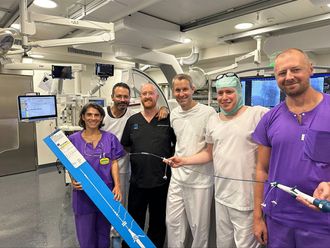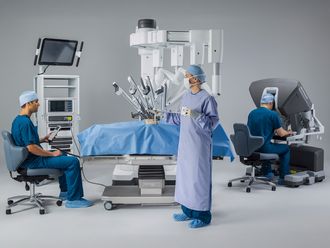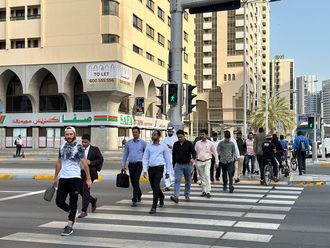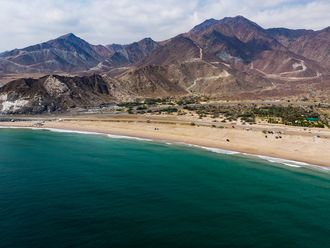Dubai: The culture of kneeling for prayer and sitting cross-legged on social occasions could lead to more knee problems among people of Arab and Asian origin compared to Westerners, orthopaedic specialists warn.
The knee problems are not only a function of cultural and lifestyle differences, the specialists say.
They attribute the problems to anatomical variances in the knee structure as well as a higher incidence of osteoarthritis (OA), a degenerative joint disease that wears away the cartilage between the bones.
They said an increasing number of community-based studies suggest that knees of Arabs and Asians have more flexion (bending) required during kneeling for prayer and squatting or sitting in a cross-legged posture.
Speaking to Gulf News, orthopaedic specialists pointed out that among cultures that require kneeling, people achieve around 160 degrees flexion whereas Westerners appear to flex to about 140 degrees.
Such deep flexion activities place pressure on the knees, increasing the risk of knee problems.
Osteoarthritis
The risk increases further, said specialists, given the high incidence of osteoarthritis among Arabs and Asians with obesity being a risk factor, and history of knee injury that could lead to osteoarthritis.
According to the World Health Organisation (WHO), osteoarthritis is one of the ten most disabling diseases in developed countries. The body also states that 80 per cent of those with osteoarthritis will have limitations in movement, and 25 per cent cannot perform their major daily activities of life.
Dr Deepak Bhatia, senior consultant orthopaedic surgeon, Al Zahra Hospital and Al Zahra Medical Centre Dubai, UAE, said that 40 per cent of his Arab and Asian patients suffer from knee problems.
“A common cause is osteoarthritis, which develops due to several factors including genetic susceptibility and joint injury. Kneeling in prayer in Arab and Asian cultures puts pressure on the knee cap [patella] three times the body weight, causing more wear and tear,” he said.
Diagnosis delay
Dr Bhatia said that knee problems appear at a later stage because Arabs and Asians tend to delay diagnosis.
“Call it a cultural thing - Arabs and Asians wait longer to seek help. The delay in seeking help, results in a delay in non-surgical interventions like supplements and injections. When diagnosis is late, the only option is surgery,” he said.
Echoing the same opinion is Dr Gerald Zimmerman, orthopaedic and trauma surgeon at German Medical Centre. He said, “The kind of pressure that Asians and Arabs put on their knees is double compared to Westerners. We see a lot more cartilage damage among these cultures.”
At Rashid Hospital, under the Dubai Health Authority (DHA), Dr Suad Trebinjac, the head of Physical and Rehabilitation Medicine, has seen several of his patients complain of knee problems.
Obesity
“Roughly 80 per cent of our patients are Emiratis, of which, 45 per cent have osteoarthritis. I attribute knee problems to increased pressure to the knee joint and cartilage due to factors including obesity, sedentary lifestyle, incidence of flat foot [fallen arches which lead to knee pain], and indirect link of diabetes that affects blood vessels and joints.”












